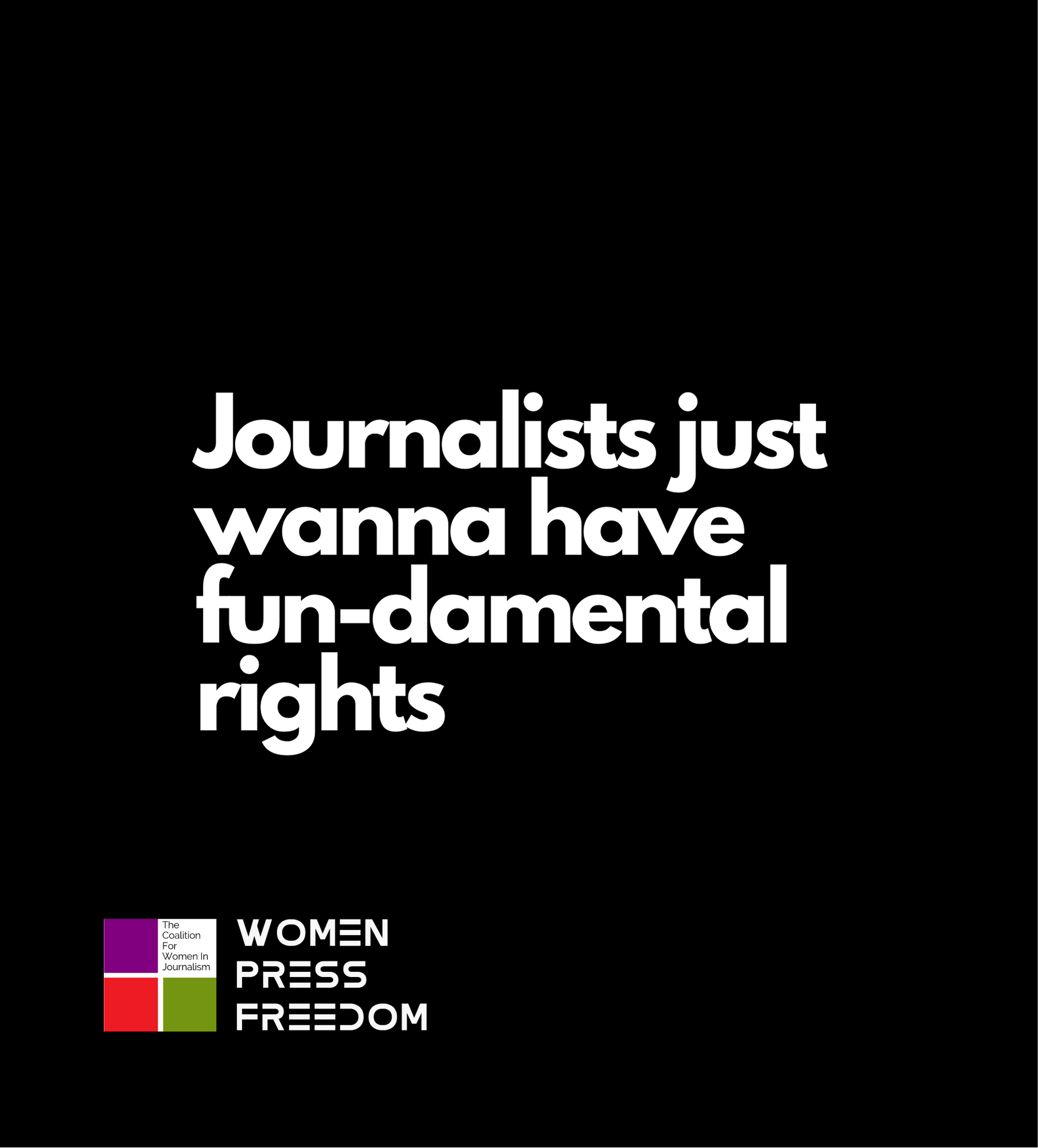Netherlands: Women Press Freedom Raises Alarm Over Legal Intimidation of Dutch Media Following Free Press Unlimited Study
Research sheds light on the unseen battles Dutch journalists face, underscoring the urgent need for legal protection and support
Journalist Ans Boersma in court in 2021. Boersma was unjustifiably deported from Turkey in 2019, after Dutch intelligence reportedly shared with Turkish authorities the journalist had links to a terrorist organization
Women Press Freedom expresses deep concern over the escalating legal pressures on journalists in the Netherlands, as highlighted in recent research by Free Press Unlimited. Having documented a worrying number of SLAPP cases primarily in Europe, we view the situation in the Netherlands as a significant threat to journalistic freedom and democracy. These legal intimidations, leading to self-censorship and significant financial, psychological, and professional strain on journalists, especially affect the most vulnerable in the field. We urge the Dutch government to implement stronger legal protections against such abuses and call for increased support and solidarity within the journalistic community to ensure that media professionals can operate without fear of legal reprisal, preserving the public's right to information and maintaining the integrity of democratic societies.
In a comprehensive investigation released by Free Press Unlimited (FPU) on April 10, 2024, it has been revealed that Dutch media and journalists are increasingly subjected to legal pressures, leading to self-censorship as well as psychological and financial burdens, especially on freelance journalists and smaller media outlets. Titled “An Underestimated Problem: Disproportionate Legal Pressure on Dutch Journalism,” the study highlights how these legal challenges often remain invisible to the public and are largely underestimated in their impact.
The research, which involved interviews with over fifty journalists, editors, lawyers, and other stakeholders, builds on a 2023 survey by the Dutch Association of Journalists (NVJ) and PersVeilig, showing nearly half of Dutch journalists and 90 percent of editorial boards have faced legal threats over publications.
The study points out the disproportionate effect of legal tools used against journalists, affecting their investigations and often resulting in financial strain due to legal costs, time investment in preparing for legal battles, and significant psychological impacts. These repercussions frequently drive journalists towards self-censorship, where they either dilute their stories, omit verified information to avoid legal disputes, or halt investigations entirely.
The research underscores that freelancers, local media, and smaller publications are particularly vulnerable to these pressures, making them more likely to resort to self-censorship. Even journalists associated with larger publishers, despite having some degree of protection, express concerns over legal cost coverage in situations like retirement or illness.
The psychological toll on journalists, often underestimated by their superiors, leads to severe stress, fear, and mental health issues, with many feeling isolated and lacking solidarity from peers.
Thomas Bruning, General Secretary of the Dutch Association of Journalists (NVJ), endorsed the study’s recommendations to fortify journalism against such pressures.
A significant focus of the study is on SLAPPs (Strategic Lawsuits Against Public Participation), used by powerful entities to intimidate journalists and silence dissent. While the European Council is set to sign a directive protecting journalists and human rights defenders from SLAPPs, the study’s authors, Bergmans and De Zeeuw, note that current Dutch laws offer inadequate protection against such abuses. They advocate for specific legal amendments to quickly dismiss SLAPP cases, safeguarding freedom of expression.
Women Press Freedom is increasingly alarmed by the growing trend of legal pressures that threaten journalistic freedom. Our work has extensively documented the prevalence of Strategic Lawsuits Against Public Participation (SLAPP) cases across the globe, with a concerning majority occurring within Europe. These cases, often brought forward by powerful entities, are not just legal battles but a direct assault on the pillars of free expression and the public's right to know.
The Netherlands, long viewed as a bastion of press freedom and democratic values, is showing signs of succumbing to the same pressures that have silenced voices and stifled freedom in other parts of the world. This is particularly concerning for us at Women Press Freedom: these legal pressures disproportionately affect the most vulnerable in our profession, including freelance journalists and smaller media entities who lack the resources to fight prolonged legal battles.
The introduction of anti-SLAPP legislation in Europe is a step in the right direction, but it is clear that more needs to be done, especially at the national level in the Netherlands, to ensure that journalists can carry out their work without fear of unwarranted legal persecution. We call on the Dutch government to heed the recommendations made by FPU and to implement robust legal reforms that protect journalists from SLAPPs and other forms of legal intimidation.
Moreover, we urge media employers and journalistic organizations within the Netherlands to provide more substantial support and resources to their journalists, fostering an environment where legal threats do not lead to self-censorship or the abandonment of important stories. Solidarity within the journalistic community is paramount, and we stand ready to support our Dutch colleagues through advocacy, awareness, and direct support to those facing undue legal pressures.
Women Press Freedom is an initiative by The Coalition For Women In Journalism
The Coalition For Women In Journalism is a global organization of support for women journalists. The CFWIJ pioneered mentorship for mid-career women journalists across several countries around the world and is the first organization to focus on the status of free press for women journalists. We thoroughly document cases of any form of abuse against women in any part of the globe. Our system of individuals and organizations brings together the experience and mentorship necessary to help female career journalists navigate the industry. Our goal is to help develop a strong mechanism where women journalists can work safely and thrive.
If you have been harassed or abused in any way, and please report the incident by using the following form.


